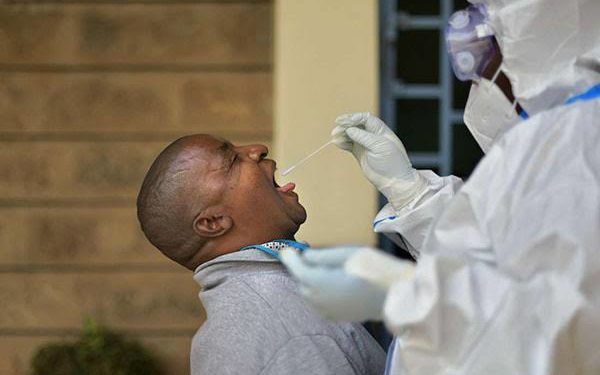The European Union in Uganda and the Ministry of Health officials are worried about the rate at which Ugandans are abandoning the Covid-19 prevention measures, warning that the Pandemic is far from over.
This comes amidst an evident decline in the use of face masks, hand washing and sanitisers and even social distancing, among others, especially following the full re-opening of the economy in January.
Uganda has so far recorded 164,768 cases of Covid-19 infections and 3,595 deaths, while the daily infection rate has dropped to between 10 and 20, according to the ministry.
But experts and humanitarian agencies are warning that this is putting the nation in a dangerous situation, because of a likelihood of new outbreaks in the next few months, at least according to the World Health Organisation, WHO.
Dr Michael Kibuule from the Ministry of Health says that it may seem to most Ugandans that the pandemic is now history or no longer has drastic health effects, but that viral pandemics can be most unpredictable. He cautioned that Ugandans should take the WHO warnings seriously.
The EU Deputy Head of Delegation to Uganda, Anna Merrifield, says Uganda had done well in preventing mass Covid-19 related deaths over the last two years of the pandemic, but that the drastic measures will have long-lasting socio-economic effects, including stretching the health sector. She says that while the EU will continue giving assistance, including vaccines and other health items and services, Uganda and Ugandans must know that the virus is not yet gone.
Ms Merrifield warned that the effects of the pandemic could last years or even decades because of the way the country handled the education sector in the last two years. Schools in Uganda were closed in March 2020 and just reopened in January this year. Children, out of school for two years, were allowed special promotion to the next level and effectively lost one academic year.
To say this,Ms Merrifield was handing over relief items dubbed ‘Dignity Kits’ to Amuru District Local Government,on Saturday 26th March 2022, under the EU-IGAD COVID-19 Response programme, aimed at mitigating the health and socioeconomic impact of the Covid-19 pandemic in the IGAD sub-region. The ‘Dignity kits’ are largely household and personal care and hygiene items, and this batch is targeted at helping 2,500 households in Amuru District, northern Uganda.
This time around, the donation, worth 147 million Shillings, is aimed at alleviating the effects of sexual and gender-based violence which increased during the lockdown period. The items donated include household hygiene items like water collection jerry cans, buckets for storing drinking water, tippy taps, and laundry soap. And Personal supplies such as bathing soap, sanitary pads, and clothing.
Sanusi Tejan Savage, Chief of Mission at the International Organization for Migration, says most people know COVID-19 as a disease that has brought the world to its knees, yet it is much more than just a health crisis. He says that their assessment in Amuru and Adjumani districts have, for instance, shown that COVID-19 caused a spike in cases of sexual and gender-based violence, and forced people to take desperate survival measures.
Last year, the project handed over support worth 662.7 million Shillings, including a pharmaceutical fridge, COVID-19 test kits and reagents; personal protective equipment (PPEs) such as gloves and masks and infection control items such as sanitiser, soap, disinfectants, and thermometers.
Amuru Chief Administrative Officer Thomson Obong says that Amuru, like other local governments, has had its resources stretched and cannot adequately implement its programs unless helped.
On her part, IGAD Head of Mission to Uganda, Lucy Daxbacher, called on the governments and development partners, for increased investment in the health sectors not only to handle COVID-19 but to raise their readiness for any future outbreaks outbreak.
She gave an example of the confusion that happened immediately after the outbreak, with all test samples having to be taken to collection centres, and then to the Virus Research Institute in Entebbe.
Do you have a story in your community or an opinion to share with us: Email us at editorial@watchdoguganda.com













